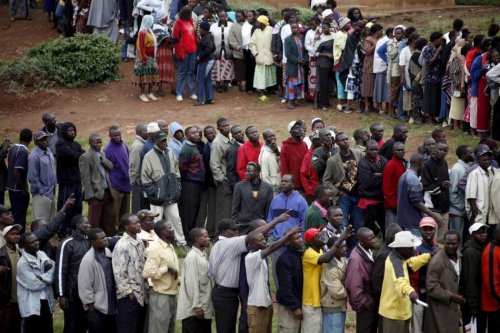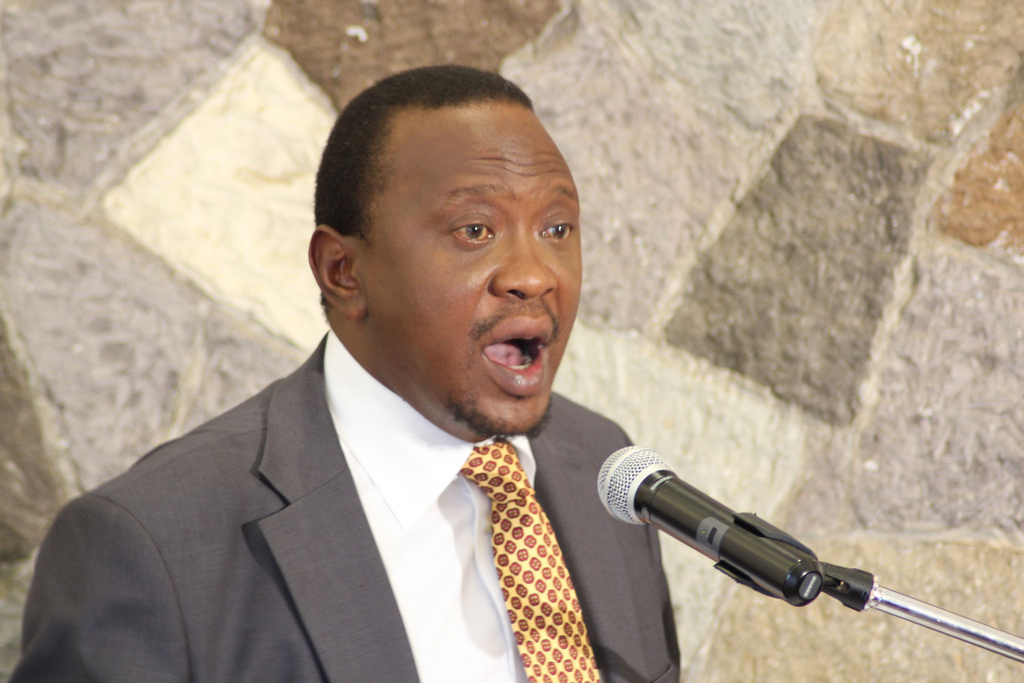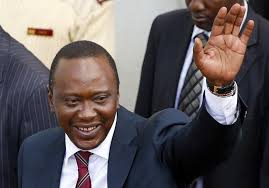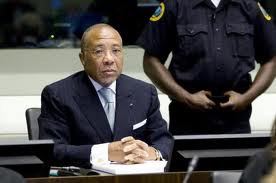This is the second in a two part post. You can read the first part here.

Two sides have formed in the run-up to Kenya’s March election. The first, under the Jubilee Alliance, is an alliance between presidential candidate Uhuru Kenyatta and his running-mate William Ruto, two experienced political leaders who are also suspects to the International Criminal Court (ICC) for crimes against humanity conducted in Kenya’s previous election period. The second main side vying for election is a partnership between presidential hopeful Raila Odinga and his running-mate Kalonzo Musyoka, under the CORD Alliance (Coalition for Reforms and Democracy). This clash of titans has three possible outcomes:
1. Electoral violence that repeats the troubles seen in 2007/8
Given the closeness of the contest and the high stakes involved for participants, there is a possibility that the practice of ethnic hate speech, the rigging of ballot boxes and the organisation of intimidating practices results in large-scale violence, as witnessed in the previous election. If such an occurrence were to destabilise the voting procedure, it is possible that international actors would move in to arbitrate the dispute and assist the formation of another power-sharing arrangement. This outcome is unlikely, however, because of the large investment being made into the electoral commission and the aversion amongst international actors for rewarding perpetrators of violence with a place at the negotiating table. If such an outcome were to occur, however, it would obviously be negative for international confidence in Kenya and lead to extended apathy over the government’s ability to contain graft or execute well-thought-out public policy.
2. Victory for presidential candidate Uhuru Kenyatta and the Jubilee Alliance
As representative of an “anyone but Odinga” coalition, Kenyatta is likely to compete in a voting run-off against Odinga for the presidency two weeks after the first round. Given the previous willingness of Kenyatta and his allies to use violence to manipulate voters’ insecurities, it may be that Kenyatta wins the election by destabilising the voting period and depicting his coalition as the more national, rather than ethnic, option. Such an outcome would probably mean subsequent refusal by Kenyatta to participate in the ICC process, which would in turn work to stabilise the impunity of Kenya’s elites. Political disagreement still remains in Kenya on whether suspected perpetrators of the post-election violence should have been tried under a local tribunal or the ICC, and Kenyatta and Ruto have spun this ongoing discussion into a debate over whether others believe them to be guilty or not. The Jubilee Alliance would use this framing of their opponents’ stances to reject the ICC proceedings if they come to office, arguing it to have been a dishonest attempt to sabotage their reputations.
3. Victory for Raila Odinga
The most likely outcome of the 2013 presidential election is victory for Odinga in a second round run-off. These weeks surrounding the election are seeing a tense period of campaigning in diverse parts of the country. In the process, Odinga’s coalition may gain support as he campaigns for ‘anyone other than an ICC suspect’. The consistency of Odinga’s appeal is also likely to be further supported by the two presidential debates in the next few days, due to be televised in US-style on 11 and 25 February. The emphasis throughout discussion over the new constitution has been on devolution and this has whetted the appetite of smaller ethnic groups who may look to Odinga as a candidate of choice for supporting local government, especially across Kenya’s eastern coast.[i] Although voters in the diaspora will not be allowed to participate in this election,[ii] there has nevertheless been heightened scrutiny in the Kenyan press of concerned comments by Kofi Annan and Barack Obama, contributing in a small way to reticence in supporting the Jubilee Alliance of ICC suspects.[iii] All of these factors, taken together, make a second round run-off victory for Odinga the most likely outcome. If this were to come about, ICC suspects would stand trial throughout the next parliamentary term, helping to erode a growing culture of impunity in the country. Such a result would ignite international confidence in Kenya and many of the shortcomings of Odinga’s history of unprincipled leadership and corruption would be overlooked as attention is placed instead on the implementation of a devolved system of government.
Despite the tensions surrounding these next few weeks, however, there are two reasons for optimism. The first is that citizens of Kenya are widely interpreting this moment as an internationally-observed test of their democracy and new constitution. Given the suffering caused by the last election, no-one is taking anything for granted and so there is a constant call within Kenya for caution.[iv] This means that Kenya is less likely to fall prey to the kinds of pre-emptive proclamations of victory which caused so much political frustration to supporters of Odinga in 2007/8.
The second reason for optimism is that both sides of this contest are genuinely multi-ethnic. It is well known in Kenya how easy it is to guess another’s ethnicity on the basis of their name, but what are we to make of ‘Uhuruto’, which merges the names of Uhuru Kenyatta and William Ruto? And, in response to this deft political move of the Jubilee Alliance, scribbled across the webpage of CORD we find ‘Railonzo’, mixing Raila Odinga’s name with that of his running-mate Kalonzo Musyoka.[v] ’Uhuruto’ and ‘Railonzo’ are two very multi-ethnic options to choose from.
Despite these causes for optimism, however, something disturbing is lurking beneath the surface which must be watched with scrutiny. One of the most sinister instruments behind Kenya’s 2007/8 post-election violence was the Mungiki, a criminal gang that claims to represent the neglected Kikuyu youth. The group carried out organised killings during the last election and are widely speculated to have been working in partnership with key politicians.[vi] In an expert commentary on the recent developments of that movement, Jacob Rasmussen notes how the leader of the Mungiki, Maina Njenga, dissolved the movement in 2009 and converted to Christianity, exhorting his supporters to follow suit.[vii] In the run-up to this election, Njenga has formed the political party Mkenya Solidarity and brokered an unlikely alliance with Odinga and CORD. Mkenya Solidarity professes to have cut all ties with the militant Mungiki movement but Kenyan pundits are not convinced these are different people.[viii]
By joining with CORD, Njenga is committing himself to a characteristically risky strategy. He seeks to undermine Kenyatta’s support base amongst those of Kikuyu ethnicity by appealing to their frustrations at having seen few of the benefits associated with political power over the past decade.[ix] Forming an alliance with CORD has increased popular coverage of Njenga’s campaign and, at the same time, Njenga has avoided losing a sense of loyalty to the interests of central Kenyans by declaring he will run for the position of Nairobi senator.
There is a long history in voter discontent amongst lower class Kikuyu that Njenga can exploit, but his rise to importance for the national elections has really come as a result of his endorsement by CORD. In mid-2012, a rally was held at Kamukunji grounds where, one by one, CORD politicians pledged alliance with Mkenya Solidarity, with Ababu Namwanba MP shouting to the crowds: ‘I have come here to show that we are together.’[x] For presidential candidate Odinga, this is part of a long campaign strategy that seeks to unhinge Kenyatta’s national appeal, be it on the coast, in the Rift Valley, or, in this case, in Kenyatta’s backyard.[xi]
A reason for disquiet is that Kenyatta’s response to this general strategy is likely to evolve rapidly in the next few days and weeks if poll ratings show him to be behind. Kenyatta and Ruto’s comments on their indictment by the ICC have not revolved around refusing to participate but their feeling that Odinga should also be tried. .[xii] The perception amongst supporters of Kenyatta that Odinga was just as much if not more to blame for the 2007/8 violence can thus be dangerously spun by Odinga’s sudden affiliation with Njenga, and plays all too easily into legitimising violence against supporters of CORD under the guise of a law-and-order response.
International observers must therefore watch closely the security forces of the Kenyan state because if any such strategy by the Jubilee Alliance materialised, it would be carried out in the same way in which extra-judicial killings by police have been normalised in the pursuing the Mungiki over the past five years.[xiii] There is some sketchy evidence of hasty reorganisations of leadership in the police and internal security in the closing stages of President Kibaki’s term[xiv] and these do not exude confidence in the police’s ability to arbitrate independently if Kenyatta were to claim (however spuriously) that groups connected with CORD a threat to the peace of election day.
[i] Fierce flames of political opposition to a “centrist” view of Kenyan politics have been fanned by the Mombasa Republican Council (MRC), which advocates secession of the coast from Kenya. The MRC have boycotted this election, and so are unlikely to feature prominently, but their popularity over the past few years nevertheless reflects an underlying trend of contempt for the over-representation of central Kenya in national politics. For evidence from the 2007 election of Odinga’s ability to galvanise coastal resentment, see Branch, D., Kenya: Between Hope and Despair, 1963-2011 (London: Yale University Press, 2011), p. 267.
[ii] Wafula, C., ‘Kenyans in Diaspora miss out on 2013 poll’, Daily Nation (27/11/12). http://www.nation.co.ke/News/politics/Kenyans-in-Diaspora-miss-out-on-2013-poll/-/1064/1630328/-/fikv9u/-/index.html (accessed 08/02/13).
[iii] See, respectively, Menya, W., ‘Kofi Annan Comments Spark Kenyan Election Row’, Institute for War & Peace Reporting (21/12/12). http://iwpr.net/report-news/kofi-annan-comments-spark-kenyan-election-row (accessed 08/02/13); and Njagih, M., ‘US warns over choice of president’, Standard (08/02/13). http://www.standardmedia.co.ke/?articleID=2000076800&story_title=Kenya-US-warns-over-choice-of-president (accessed 08/02/13).
[iv] See, for example, Otieno, R., ‘NCIC: Coded language, stereotyping fuelling hatred’, Standard (07/02/13). http://www.standardmedia.co.ke/?articleID=2000076791&story_title=Kenya-NCIC:-Coded-language,-stereotyping-fuelling-hatred (accessed 08/02/13).
[v] CORD Kenya. http://www.cordkenya.org/ (accessed 08/02/13).
[vi] Immigration and Refugee Board of Canada, ‘Kenya: Activities of the Mungiki sect and response by government authorities (2008 – October 2009)’, KEN103225.E (16/11/09). http://www.irb-cisr.gc.ca:8080/RIR_RDI/RIR_RDI.aspx?id=452628 (accessed 08/02/13).
[vii] Rasmussen, J., ‘Kenya: Mungiki Regroup Pre-Election In Search Of Political Influence’, African Arguments (01/02/13). http://africanarguments.org/2013/02/01/kenya-mungiki-regroup-pre-election-in-search-of-political-influence-%E2%80%93-by-jacob-rasmussen/ (accessed 08/02/13).
[viii] NTV Kenya, ‘The Maina Njenga factor’ (09/06/12). http://www.youtube.com/watch?NR=1&feature=endscreen&v=wmRH07oEnpY (accessed 08/02/13).
[ix] The Kenyan Daily Post, ‘Maina Njenga to Shock Uhuru with 5 million youths to counter TNA euphoria in Mt Kenya’ (26/11/12). http://www.kenyan-post.com/2012/11/maina-njenga-to-shock-uhuru-with-5.html (accessed 08/02/13).
[x] ‘Mimi nimekuja hapa kuonyesha kwamba tuko pamoja.’ Citizen TV, ‘Maina Njenga Mkenya Solidarity Party Launch’ (09/06/12). http://www.youtube.com/watch?v=D4aZWXWBySs (accessed 08/02/13).
[xi] See Too, T., ‘PM changes tack in an attempt to woo Rift Valley’, Standard (08/11/12). http://www.standardmedia.co.ke/?articleID=2000070228&story_title=pm-changes-tack-in-an-attempt-to-woo-rift-valley (accessed 08/02/13); and Kithi, N., ‘Raila, Mudavadi head to Coast in vote hunt’, Standard (08/02/13). http://www.standardmedia.co.ke/?articleID=2000076822&story_title=Raila,-Mudavadi-head-to-Coast-in-vote-hunt (accessed 08/02/13). Online photographs show Odinga being honoured by Njenga as a Kikuyu elder. Itumbi, D., ‘Maina Njenga Crowns Raila as a Kikuyu Edler’ (03/08/12). http://www.dennisitumbi.com/?p=542 (accessed 08/02/13). Photographs by Geoffrey Mwanyanya.
[xii] Odinga’s image was further stained in 2012 by his previous advisor on coalition affairs, Miguna Miguna, who authored Peeling Back the Mask: A Quest for Justice in Kenya (London: Gilgamesh Africa, 2012).
[xiii] Immigration and Refugee Board of Canada, 2009.
[xiv] Changes to internal security began after the death of Internal Security Minister George Saitoti in a helicopter crash on 10 June 2012. After a period in which the Defense Minister Yussuf Mohamed Haji acted in the position, Katoo ole Metito was appointed as Internal Security Minister, a known Kibaki loyalist who is giving support to the Jubilee Alliance. Elsewhere in the security services, after Police Commissioner Hussein Ali was indicted by the ICC for initiating violence in the 2007/8, Kibaki replaced him with Mathew Iteere, former General Service Unit Commandant, in September 2009. In late 2012, however, the position was renamed “Inspector General” and given to David Kimaiyo, who has gone on to challenge the National Police Service Commission’s sudden appointment of three junior officers into high positions. One of these controversial appointments is Ndegwa Muhoro as Director of the Criminal Investigations Department. Muhoro has been accused by the Independent Police Oversight Authority of a suspected lack of integrity over a previous forensics case, but their objection was dismissed by Kibaki. Odinga has expressed deep reservations over these appointments, noting he was not consulted. More generally, one has to ask why controversial figures are being put in high positions so close to the election. For the relevant news articles see, respectively: Daily Nation, ‘Newly appointed ministers, assistant sworn-in’ (21/09/12). http://www.nation.co.ke/News/politics/Newly+appointed+ministers+assistant+sworn+in+/-/1064/1514230/-/ofqb0pz/-/index.html (accessed 08/02/13); Ongiri, I., ‘Uhuru and Ruto get Jubilee nod as race for top seat takes shape’, Daily Nation (24/12/12). http://www.nation.co.ke/News/politics/Uhuru-and-Ruto-get-Jubilee-alliance-ticket/-/1064/1650772/-/y1bu9/-/index.html (accessed 08/02/13); Kariuki, A., ‘Kibaki moves Ali, names new Kenya police boss’, Daily Nation (08/09/09). http://www.nation.co.ke/News/-/1056/654698/-/umsmbr/-/index.html (accessed 08/02/13); Limo, L., ‘David Kimaiyo sworn in as first Inspector General of Police’, Standard (25/12/12). http://www.standardmedia.co.ke/?articleID=2000073687&pageNo=1 (accessed 08/02/13); Maini, K., ‘Kavuludi defends CID chief Muhoro’, The Star (31/01/13). http://www.the-star.co.ke/news/article-105155/kavuludi-defends-cid-chief-muhoro (accessed 08/02/13); NTV Kenya, ‘Raila rejects Kaindi, Muhoro appointments’ (25/01/13). http://www.ntv.co.ke/news2/topheadlines/raila-rejects-kaindi-muhoro-appointments/ (accessed 08/02/13).







No Comment